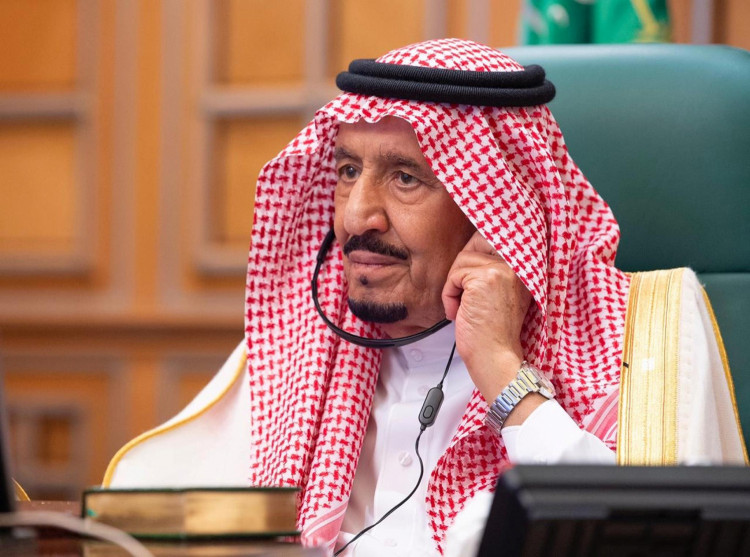According to multiple media reports, oil "kingdom" Saudi Arabia is playing a grand game, simultaneously showing strength to the U.S., aligning with Russia and Iran, all in an effort to safeguard its influential role in the international oil market.
Secret Threat to Sever Relations with U.S. and Economic Retaliation
As per a U.S. intelligence file unveiled and analyzed by the Washington Post, Saudi Arabia has threatened to sever relations with the Biden administration and reduce oil production amidst soaring energy prices.
The Washington Post, in a Friday article, noted that a classified document reveals that Crown Prince Mohammed bin Salman has privately threatened to fundamentally alter decades-long relations between the U.S. and Saudi Arabia, and if the U.S. retaliates over Saudi's oil cuts, the U.S. will pay a significant economic price.
The report states that eight months have passed, yet the Biden administration has not exerted pressure on Saudi Arabia. Prince Mohammed continues to interact casually with top American officials, just as he did this week when he met with U.S. Secretary of State Antony Blinken in Jeddah.
The Biden administration vehemently denies these intelligence documents. A National Security Council spokesperson stated to the Washington Post that they are not aware of any such threats from Saudi Arabia.
"In general, such documents typically only represent a snapshot of a moment and are not capable of portraying the whole picture," the anonymous official said during an intelligence discussion.
This official added that The U.S. continues to work with our vital partner in the region, Saudi Arabia, to promote our shared interests and vision for a safer, more stable, and prosperous region interconnected with the world.
Saudi-Russia Alliance, Consistent in Production Cuts
Last Sunday, ahead of the 35th OPEC+ Ministerial Meeting held in Vienna, an unusual occurrence took place.
Three major Western news agencies - Bloomberg, Reuters, and the Wall Street Journal - were barred from entering the conference venue. When asked why, they received the following response: "This is our house."
Previously, Western media had been reporting signs of a rift in cooperation between Saudi Arabia and Russia.
However, the outcome of the meeting was as reported by the Wall Street Journal, with Saudi Arabia volunteering to cut an additional 1 million barrels of oil production in July, a cut that could be extended. OPEC+ countries are maintaining their production targets, but the existing cuts have been extended until the end of 2024. Russia is extending its current production cuts until the end of 2024 as well.
After the meeting, a Kremlin statement said that Russian President Putin had a call with Mohammed. The two leaders "highly appreciated the level of cooperation within OPEC+ - allowing timely and effective action to maintain a balance in the crude oil market."
Russian Deputy Prime Minister Alexander Novak made it clear that Russia and Saudi Arabia are on the same page when it comes to the OPEC+ agreement:
"No, there is no disagreement between Russia and Saudi Arabia. We can always find common solutions. Over the years, our agreement has been effective, in the market's interest, in the interest of the participating countries, and in the interest of exporters and producers."
"We can always find common solutions with Saudi Arabia. Of course, we always have preliminary discussions, but we always reach a consensus."
Saudi-Iran Resume Diplomatic Relations, Russia-Iran Establish Economic Partnership
On May 18, Russia and Iran signed 10 cooperation documents related to the oil industry, including six memorandums of understanding, two contracts, one agreement, and a roadmap for bilateral industrial, technological transfer, and improved oil recovery cooperation. The agreement allows Russian companies to conduct oil and gas business in Iran.
After signing the agreement, Russian Deputy Prime Minister and co-chair of the Permanent Commission for Trade and Economic Cooperation between Russia and Iran, Alexander Novak, said the two countries have been negotiating on banking cooperation and the use of national currencies in bilateral trade.
Moreover, Iran and Saudi Arabia have officially resumed diplomatic relations. According to China News Service citing Iran's Tasnim news agency, Iran's newly-appointed ambassador to Saudi Arabia, Ali-Resa Enayati, said that the re-establishment of Iran-Saudi relations will have a positive impact on regional situations.
During the restoration ceremony of the Iranian embassy in Saudi Arabia, Iranian Deputy Foreign Minister Bigdeli stated that this day is important in Iran-Saudi relations, and the cooperation between the two countries "has entered a new period."
Saudi Arabia Actively Seeks to Enhance International Influence by Joining BRICS
In fact, Saudi Arabia's growing influence internationally is making the Biden administration uneasy.
Last month, the Global Times quoted the Financial Times as saying that Saudi Arabia is applying to join the BRICS countries, with negotiations ongoing between the two parties.
Saudi Foreign Minister Faisal bin Farhan Al Saud attended the BRICS Ministers' Meeting held in Cape Town, South Africa last week. On the sidelines, Farhan met with Russian Foreign Minister Sergey Lavrov.
In early June, the Independent reported that BRICS countries are considering expanding membership and might even create a new international common currency for trade to replace the dollar.
If Saudi Arabia joins BRICS at this time, it would have a "disastrous" impact on the pillar of the Western banking system - the petrodollar - and might create a new global oil market.





